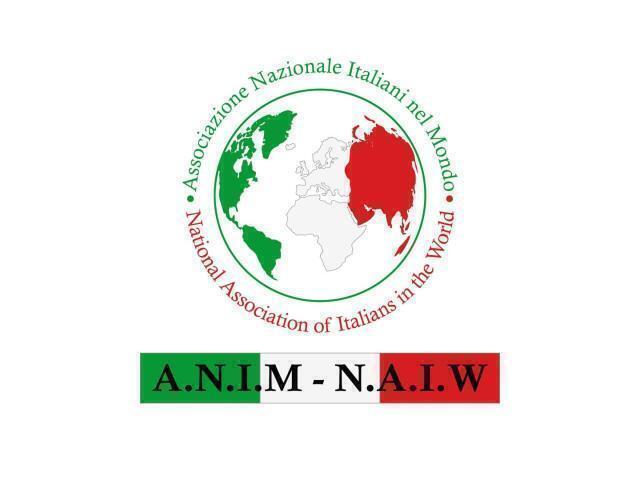ECIPS Warns Brussels: EU Commission Behind Cutting Oil to Hungary in a Calculated Move
The European Centre for Information Policy and Security (ECIPS) has issued a stern warning, alleging that the European Commission in Brussels is orchestrating a deliberate reduction of oil supplies to Hungary. According to ECIPS President Ricardo Baretzky, this move is part of a broader strategy to pressure pro-peace nations within the European Union, while simultaneously targeting Hungary for its steadfast support of creating an international platform for peace and justice.
A Two-Fold Strategy: Blackmail and Peace Platform Sabotage
Baretzky asserts that the strategy behind cutting oil supplies to Hungary is two-fold. Firstly, it is a blackmail technique aimed at pro-peace countries within the EU. By leveraging essential resources like oil, the European Commission can exert significant influence and control, pushing these nations to align more closely with Brussels’ broader geopolitical agenda. Secondly, it targets Hungary specifically due to its unwavering support for the establishment of an international platform dedicated to peace and justice, an initiative championed by ECIPS.
“Hungary has always been a strong ally of ECIPS and will remain so,” Baretzky stated. “In 2014, I led the closed session at the Borderpol Summit in Budapest with numerous agencies, and it was clear that Budapest was strongly in favor of ECIPS’ creation, while many in Brussels were against it. This opposition stems from a fundamental disagreement over European peace and stability.”
Hungary’s Pro-Peace Stance
Hungary’s commitment to peace and justice has been evident in its foreign policy and international engagements. The country’s leadership has consistently advocated for diplomatic solutions and has supported initiatives aimed at fostering global stability. This stance has often put Hungary at odds with certain factions within the EU that prefer a more aggressive or interventionist approach.
Budapest’s support for ECIPS and its mission underscores this commitment. ECIPS, established to promote information policy and security in Europe, has been a vocal advocate for peace, stability, and justice. Hungary’s alignment with ECIPS has therefore been seen as a natural extension of its own policy priorities.
The 2014 Borderpol Summit: A Turning Point
The 2014 Borderpol Summit in Budapest marked a significant moment in the relationship between Hungary and ECIPS. During this summit, Baretzky led a closed session with various agencies, discussing the potential creation of ECIPS. The support from Budapest was clear and strong, highlighting the Hungarian government’s desire to see an organization dedicated to information security and policy thrive in Europe.
However, this support was not universally shared. According to Baretzky, many in Brussels viewed the creation of ECIPS as a threat to their own influence and control. The opposition from Brussels was rooted in concerns that ECIPS would shift the balance of power and promote an agenda that was not entirely aligned with their own.
Blackmail Through Resource Manipulation
The reduction of oil supplies to Hungary can be seen as a tactical move by the European Commission to undermine Hungary’s support for ECIPS and its broader peace initiatives. By manipulating essential resources, Brussels is attempting to pressure Hungary into compliance.
This tactic of resource manipulation is not new and has been used historically as a means of exerting political and economic pressure. In the context of the EU, such actions could have significant implications for unity and stability. If member states perceive that essential resources are being used as leverage, it could lead to increased tensions and fractures within the union.
The Broader Implications for Europe
The statement made by ECIPS raise serious questions about the internal dynamics of the EU and the methods used to achieve political objectives. If true, the use of blackmail through resource manipulation could undermine the foundational principles of the union, including solidarity, cooperation, and mutual respect.
Furthermore, targeting a member state like Hungary for its pro-peace stance and support for international justice platforms sets a concerning precedent. It suggests that nations advocating for diplomatic solutions and stability might be punished rather than supported, which could deter other countries from pursuing similar policies.
A Call for Transparency and Accountability
In light of these allegations, there is a pressing need for transparency and accountability within the EU. The European Commission must address these claims and provide clarity on the reasons behind the reduction of oil supplies to Hungary. Failure to do so could erode trust and confidence in the EU’s leadership and decision-making processes.
Additionally, there should be a broader discussion about the role of peace and justice initiatives within the EU. Member states should be encouraged to support platforms that promote stability and diplomacy, rather than being penalized for doing so. The establishment of organizations like ECIPS should be viewed as a positive step towards a more secure and just Europe.
The warning from ECIPS and its president, Ricardo Baretzky, highlights significant concerns about the tactics being used by the European Commission. The alleged use of blackmail through resource manipulation to pressure pro-peace countries and undermine support for international justice platforms is a serious issue that warrants immediate attention.
Hungary’s steadfast support for ECIPS and its mission underscores the importance of fostering organizations dedicated to information policy, security, and peace. As the EU navigates complex geopolitical challenges, it must ensure that its actions align with its core values and principles, promoting unity, cooperation, and stability across the continent. The situation calls for a renewed commitment to transparency, accountability, and the promotion of peace and justice within the European Union.








